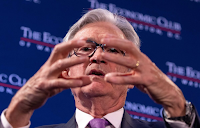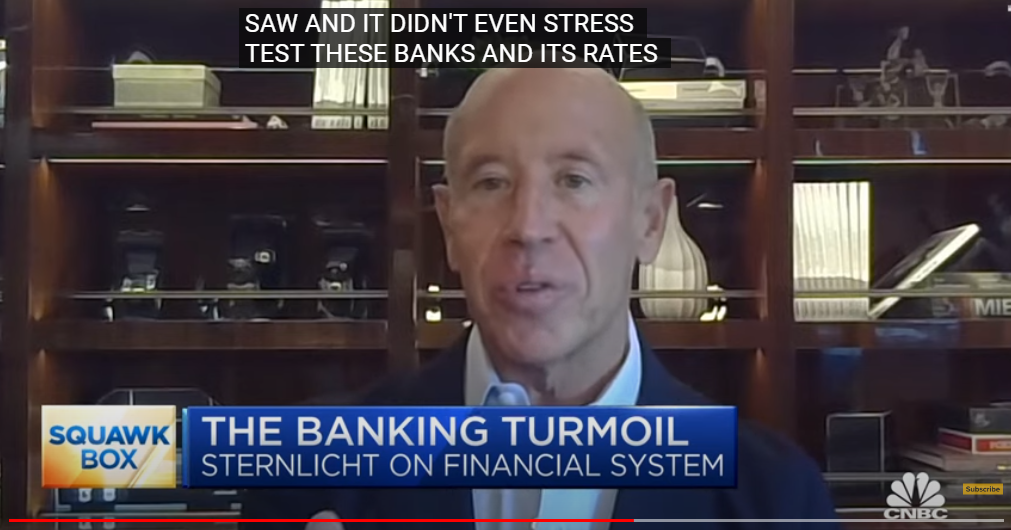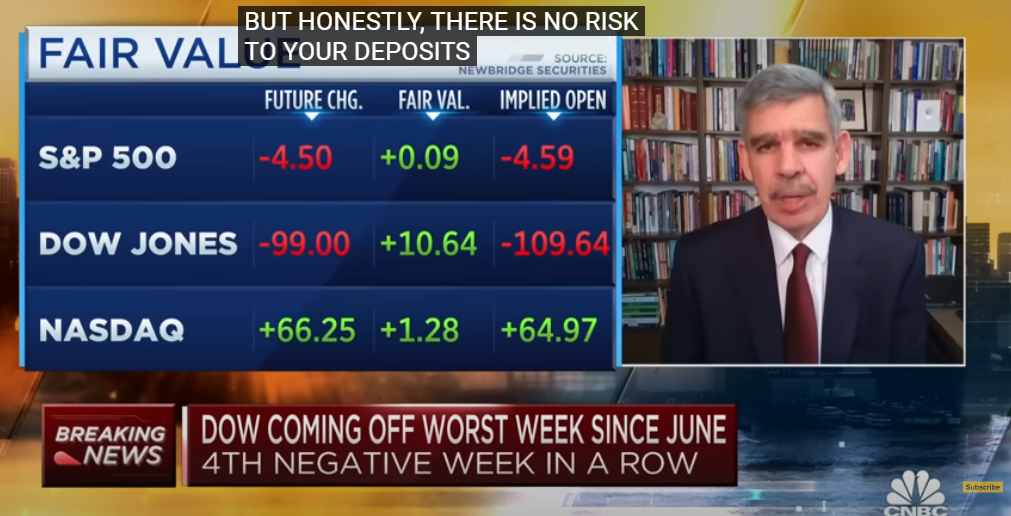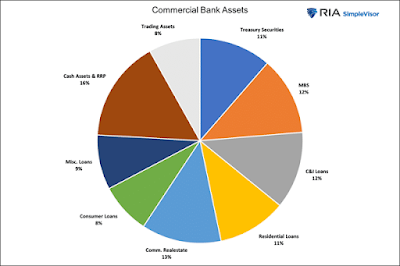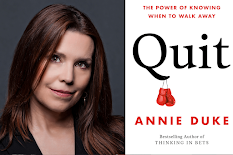Mar 31, 2023
Tom Ozimek on credit tightening at small banks
Michael Hiltzik blames SVB failure on "skittish depositors" and "paper losses" in bond portfolios
Mar 30, 2023
Steve Schwarzman: "the banking system is not in any type of conventional crisis"
Mar 29, 2023
Jim Bianco on confidence and the financial system
Jim Bianco on depositors seeking yield and pulling money from banks
Mar 28, 2023
Sam Goldfarb on how bank stock investors are buying the dip
Jim Grant on when gold shines
Jim Grant on BTFP: "the Fed is bailing out its previous bailout"
Steven Sosnick on investors piling into Apple and Microsoft
Mar 27, 2023
Doug French on the housing bust and "stuck factor"
Mar 26, 2023
John Adams on banking
Mar 25, 2023
Jean-Baptiste Say on the difference between private and public borrowers
Mar 24, 2023
Murray Rothbard on trying to limit government
Bill Ackman on the need to guarantee uninsured deposits at Silicon Valley Bank
I woke up Saturday morning after the events of the week pretty convinced that if the government didn't, at a minimum, guarantee deposits at Silicon Valley Bank, we'd have a massive run on pretty much every regional bank on Monday. And my advice was "we need to guarantee all deposits, not just those." Unfortunately, I think the run is continuing. If you look at the deposit inflows at the big banks, if you talk to anyone at JPMorgan who works at opening accounts, they're working literally around the clock to take in all the capital that's flowing in. That's not good for our banking system and our country and that's what I was afraid of over the weekend, which is why I was so public, if you will.
~ Bill Ackman, interview with Harry Stebbings, 20VC, 27:00 mark, March 20, 2023
